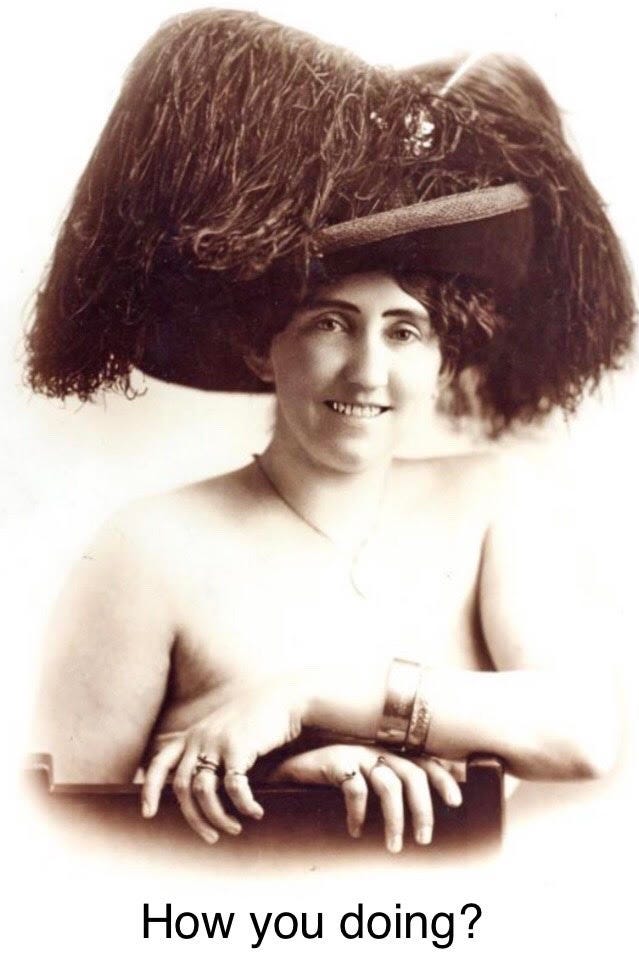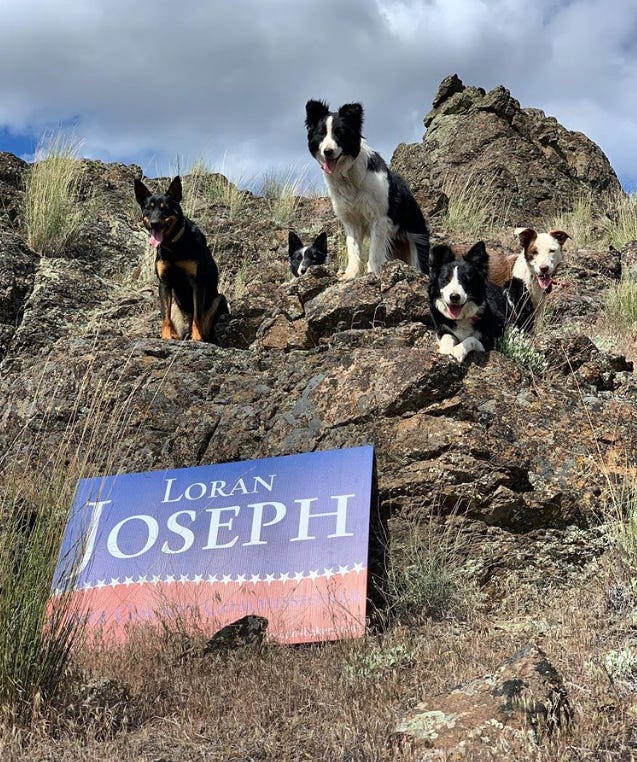Mayor Loran Joseph: Connections...not notifications
We must, as Americans and Oregonians, strive to be better. We must confront our personal bias and not be fooled by mistruths that prey on our preconceived notions.
Loran Joseph is the Mayor pro tem of Baker City.
Fifteen years ago, as a dirty college student with a fantastic head of hair, I made an offhand decision that would change my life in ways I never envisioned—a decision that has forced me to be a better person and solidify the personal connections I value while keeping myself free of the negativity inherent in social media.
Fifteen years ago, I resisted the urge to sign up for Facebook. I decided that Facebook was elitist and that I didn't have the time or energy to start a new profile on a new site. I didn’t manage to stay away from social media entirely. Back then I determined that Myspace would be a better way to distribute my music, network with other bands, and stay in touch with people who mattered. Obviously my singer/songwriter career did not benefit from this decision but if you've heard my EP then you know I can't blame it on Myspace.
The fallout from this decision—opting out of Facebook—was that when my musical aspirations failed and I began ignoring Myspace I had no interest in trying a new platform. Luckily I had friends, neighbors, and family that I could reach via text, phone, or bicycling and didn't feel a desire to reconnect with my childhood friends. I had tried that on Myspace and all they had done was left obnoxious glittery posts on my wall. I had a girlfriend (who would soon become my wife) that I had met playing basketball, so wasn't in need of social media's temptation of messaging old flames/crushes. And I was content to spend my time getting social interaction in bars, parties, get togethers, team sports, etc.
As time passed it became a joke to me, could I become the one guy who didn't have a social media account?
But in the back of my mind I always wondered if I was missing out, were there important people out there trying to get a hold of me? Could I get more traction with my new band if I was connected and promoting on social media? Would my life be more complete and would I be happier if I was able to share all the unique experiences or insightful/hilarious thoughts that crossed my mind throughout the day? I was tempted to join so that I could start groups and network to support causes I believed in, but my meme game was sorely lacking. How could I make a difference if I couldn't even create a meme that people wanted to share?
Spring of 2020 was as close as I will probably ever get to Facebook; I ran for County Commissioner and due to the pandemic was unable to execute my brilliant campaign strategy of shaking hands and kissing babies. There were no forums, no hosted meet and greets, and no ways outside of newspaper interviews and social media to talk to people.
Luckily I had a friend that was savvy and had gone through the process to be able to promote political candidates on Facebook. So we created a campaign page and began pushing out content. We expected personal messages and comments that I could interact with and use to get people to know more about me. Our expectations were far too high. I was contacted by about six people and the majority of comments were about conspiracy theories that the local sheriff had already debunked.
My social media effort did not totally fail from a campaign point of view. I also started a candidate Instagram page; it was pretty successful in that I got a lot of likes and followers in a short period of time. From a personal perspective, though, likes transfixed me in a negative way. I quickly learned to love the notification that popped up on my phone and felt validated by my use of dogs in campaign photos.
Election results aside (spoiler alert I lost), I found that social media does not contribute anything to the political conversation. It is a method for people to seek validation of preexisting beliefs and spread rumors. A way to score points against the enemy and incite your followers. We have new language that comes directly from social media and is extremely negative: FOMO, doomscrolling, catfishing, etc. Scientific studies show a link between higher levels of depression and social media use. Social media has been shown to be addictive and have a negative impact on self-esteem and satisfaction with life.
I'm not telling you anything you don't know. There's a movie out there (the Social Dilemma) that lays this out better than I can. Yet, here we are. Social media membership is still increasing. Advertising revenue on social media is at an all time high and still growing. Forbes recently reported that a Pew Research study shows that 55% of U.S. adults now get their news from social media either "often" or "sometimes."
Let's stop and think harder about that: over half of Americans get their news from a source that has been proven to spread rumors and misinformation.
The same source that was used by Russian intelligence to meddle in our elections, as disclosed in a 1,000 page Senate report. As the report made clear, it’s a source that caters to our worst traits. "By flooding social media with false reports, conspiracy theories, and trolls, and by exploiting existing divisions, Russia is trying to breed distrust of our democratic institutions and our fellow Americans," Senate Intelligence Committee Chairman Richard Burr (R-NC) said in a written statement in 2019.
We live in the most incredible age. An era of information that is free and ubiquitous, where I can answer almost any question on my mind immediately just by saying "Hey Siri." In my pocket is a device that is more knowledgeable than any encyclopedia set or library collection in the world. I have taught myself how to repair my truck, how to play the bass, how to use a wok, and countless other skills for no cost other than my time. So when my wife asks me "why do these people think baby shampoo can kill coronavirus" we can quickly point them to real information that debunks the theory. But how in the heck does that information even start spreading? How can people be more skeptical of the efficacy of masks against the spread of COVID-19 than they are of gargling baby shampoo?
What's my point you ask?
I'm not sure I have one outside of informing you and relaying my opinion. Many out there think that Thomas Jefferson said that a well-informed electorate is a prerequisite to democracy. I could find no proof of that quote coming from him. However, he did write that "the more ignorant we become, the less value we set on science, and the less inclination we shall have to seek it." He also said that "the people can not be all, and always, well informed. The part which is wrong will be discontented in proportion to the importance of the facts they misconceive."
We must, as Americans and Oregonians, strive to be better.
We must confront our personal bias and not be fooled by mistruths that prey on our preconceived notions. We must teach our children to think critically and approach information with a scientific mind. We must, much like our approach to COVID-19, work to stop the spread of misinformation. I believe this can be achieved by recognizing social media for what it is: a way to connect to others and keep in touch—not as a news source, not as way to score points on the opposition, and not as an echo chamber for extremism. My hope for 2021 is that we can realize that true and meaningful relationships require more than what we can achieve on social media and we reach out to our fellow Oregonians in other ways.
**********************************
Keep the conversation going:
Facebook (facebook.com/oregonway), Twitter (@the_oregon_way)



